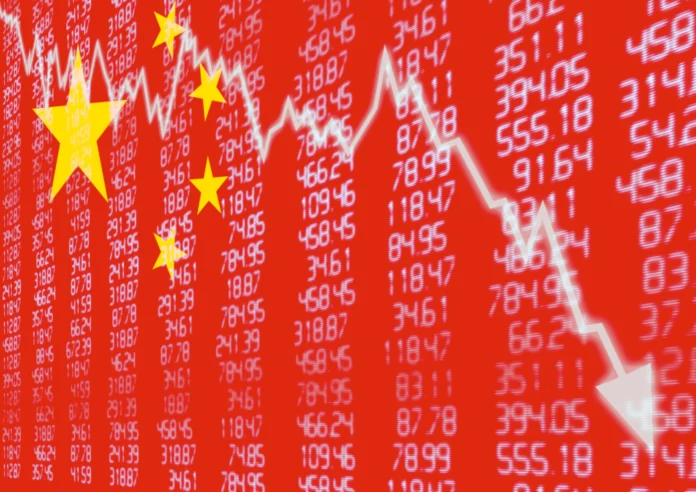- China’s crashing stock market could be the breaking point for foreign investors, Atlantic Council’s Jeremy Mark said.
- The market will become more volatile as remaining investors focus on fast profits.
- The country needs to respond to its property crisis to trigger a stable market recovery.
The decline of China’s stock market may have scarred it for the long-term, as foreign investors likely aren’t coming back, the Atlantic Council wrote on Friday.
On domestic and US indexes, Chinese firms have collectively suffered a $7 trillion hit since early 2021. The fallout could be the final breaking point for offshore traders, who are already hastening to exit amid souring outlooks on the country’s economy, Senior Fellow Jeremy Mark said.
With few reasons to jump back in, China will become the focus of investors betting on fast profits instead of stable growth.
“Investing in China likely will become the domain of foreign bargain hunters and hedge funds, some of whom already are actively trading in the market,” Mark wrote, later adding: “The fund managers who remain could end up contributing to the volatile swings in fortune that are everyday life in China’s markets.”
Beijing has responded to the financial stress in recent weeks, issuing a slew of measures meant to dampen the sharp decline. These include state-backed purchases, as well as restricted access to offshore markets and curbs on short-selling.
Although this flurry of efforts has triggered a rally this week in Chinese indexes, a more forceful recovery will depend on Beijing’s handling of broader crises, Mark noted.
China’s property market is the leading concern, considering the sector accounts for around a quarter of the nation’s GDP. Once a rapidly growing industry, its dependence on high leverage has resulted in a massive default wave, with real estate giants forced to liquidate.
Foreign investors have been disenchanted by Beijing’s slow response, while the government’s 2020 crackdown on the tech sector provided another incentive to move out of Chinese markets, Marks noted.
The stock exodus has largely been led by passive funds, as well as investors focused on long-term growth. Net foreign inflows last year reached only $6.1 billion, the lowest level since 2017.
It’s had a direct impact on China’s startup scene, with the country’s IPO market drying up as new companies search for cash.
“Even if the economy and property market bottom out in 2024, there are worrying signals about the government’s intentions for stock investors. Over the past few months, there have been various pronouncements directed at financial markets that suggest less tolerance for business as usual,” Marks said.


